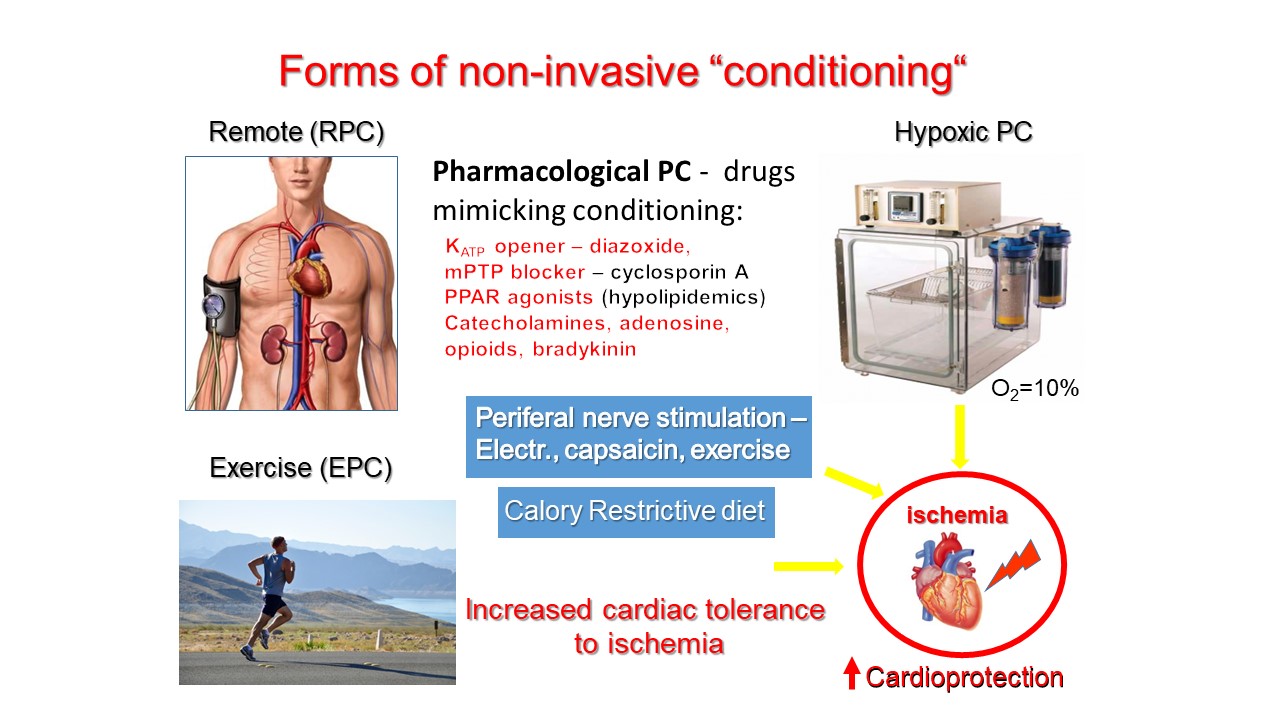Príspevky členov Učenej spoločnosti Slovenska
Characterization of novel adaptive cardiovascular interventions based on the experimental findings that could be potentially implemented in human medicine.
Institute for Heart Research, Centre of Experimental Medicine, Slovak Academy of Sciences
Despite the progress in pharmacotherapy, interventional cardiology and surgery, the mortality due to ischemic heart disease (IHD) does not decline and represents a danger in the elder population, especially in females.
Lifestyle-related diseases (hypertension, metabolic disorders) not only have a negative impact on the heart, but also reduce the effectivity of the heart’s own adaptive cardioprotective mechanisms (preconditioning, PC). Age and gender are independent factors that determine cardiac response to ischemia/reperfusion (I/R).
However, impaired adaptive potential of the hearť can be restored by modulation of the type and/or intensity of the conditioning stimulus. Protection against I/R injury may be conferred not only by classical ischemic PC, but by other stimuli, such as PC of a distant organ, motoric activity, and pharmacologically-induced PC-like stimuli.
Up-regulation of nuclear receptors PPAR is an inductor of protective signaling linked with up-regulation of metabolic genes regulating myocardial energy production.
PPAR agonists-induced protection is associated with non-metabolic effects, such as activation of downstream pro-survival targets (PI3K/Akt-eNOS), which are involved in classical IPC, and induce anti-oxidative, anti-apoptotic processes in the heart suggesting more benefits.
Remote preconditioning (RPC) applied in a distant organ is a simple and effective tool to attenuate lethal heart injury that can be applied in the clinical settings. RPC demonstrated preservation of function (energy production) and biophysical properties of cardiac mitochondria that represents a promising therapeutic approach. Our studies of this non-invasive form of PC showed that this form of conditioning also involves activation of PPAR-alpha.
Our recent study of motoric activity in rats demonstrated that sub-chronic voluntary running induced activation of proteins involved in cell survival cascade of protein kinases RISK similar to that in other forms of conditioning.
https://orcid.org/0000-0002-8804-6964
 Učená spoločnosť Slovenska
Učená spoločnosť Slovenska 